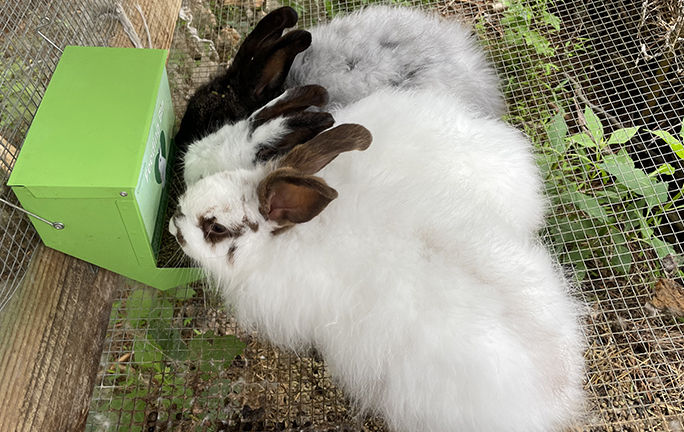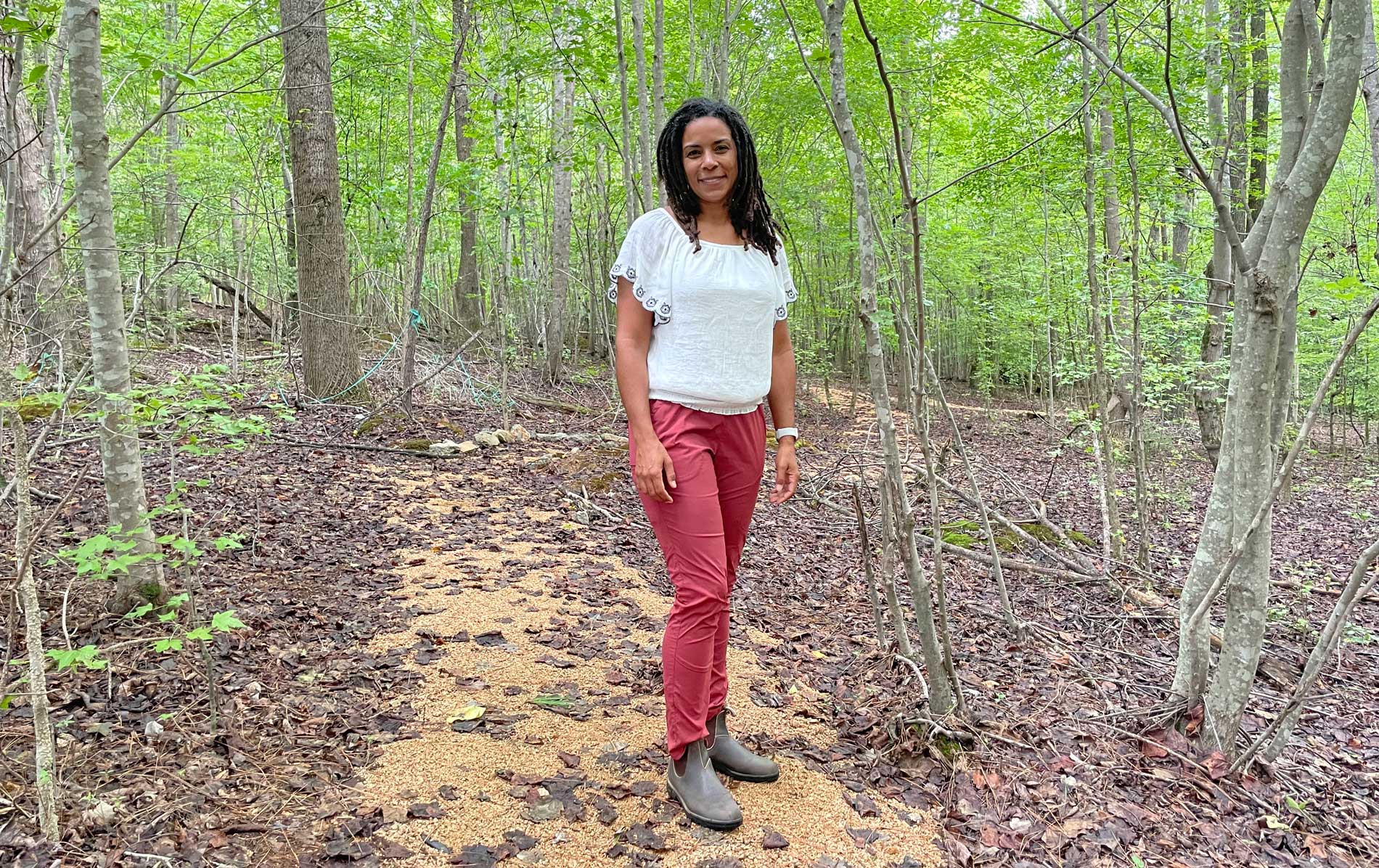Nora Dennis M.D. ’09 moves with ease and comfort through the forest. She passes a giant hammock—made for six adults, but more comfortably fitting four—strung among the trees to her left. She follows a trail built by Boy Scouts as it wends gently downhill. Here, on nearly 10 acres of central North Carolina farm, Dennis is on a new path—one connecting her career in psychiatry with her lifelong attachment to the natural world. This is Jubilee Healing Farm.
“I had a dream about this work and doing [intensive outpatient programs] at a farm,” she says. “I wanted this for [mental health patients] and it didn’t exist.”
Intensive outpatient programs are a form of step-down care, Dennis explains, to help people with severe mental illness transition from hospitalization to independent living. There’s a gap in step-down care in North Carolina, she says, with few facilities in the state offering programs to help people return to their lives after a mental health crisis. Jubilee Healing Farm opened this summer just west of Durham in rural Orange County. Therapists are already referring patients to its program.
Dennis believes patients can heal together here. She draws on medical science and the soil itself to do so.
“I wanted to support other people’s ability to be in a space that was generative and abundant and collaborative,” Dennis says.

Jubilee’s patients are young adults reeling from a mental illness diagnosis. These disorders can express themselves in childhood of young adulthood—just when people are trying to launch their lives. Patients in step-down programs are learning to live with and manage severe, persistent mental illnesses like major depression or schizophrenia.
One of Dennis’s main goals with Jubilee is to keep patients from being isolated during this period. If they’re around others, they don’t get lost in their own thoughts and perceptions, which can be harmful in this tender period. Patients have group sessions, sure, but they also garden and cook together. They benefit from the effort-driven reward cycle, Dennis says, meaning that doing things that are completable with their hands leads to a dopamine bump.
“We are evolved to derive satisfaction from doing work with our hands,” she says.
There is always work to do around the farm.
Dennis comes from a family of doctors: mom and dad are both professors emeritus at the Duke School of Medicine (Dennis’s husband and sister are also Duke faculty, leading Dennis to joke that she’s the underachiever of the family). Dennis also comes from a family of farmers. Her dad grew up on a Hillsborough farm about a mile from Jubilee. While Dennis’s mom is from Raleigh, she spent summers working a family farm in Johnston County.
“You worked hard during the day, but it was very rhythmic,” says Dennis. “I idealized that for myself.”

And now Dennis has it. She introduces the goats. She introduces the angora bunnies. She stops to greet a black racer near the path and notes that the staff have gotten to know this particular snake.
Indeed, Dennis is right at home at the farm and right at home with the work left to do. She’s launching additional programs, such as peer support training for Black college students. She’s establishing a few plots of sustainable polyculture—a farming and land-use technique based around interlocking communities of plants and crops. And she’s slowly, patiently raising blueberry bushes through their developmental years. Before there can be berries, the plants must develop leaf and root systems. Like everything at Jubilee Healing Farm, it’s a living metaphor.
“We want to flower and bloom and produce,” Dennis says. Yet before we can thrive, we must work on the fundamentals of survival.
